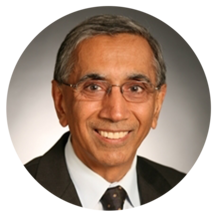About this Presentation
The topics of the presentation include availability examples, conditions for the applicability of the offer; core cloud of the client; blocking facts; elements of the offer; benefits for the client; benefits for the supplier; and comparison with other templates. Examples include spare parts distributors, fluids storage providers, and power generators manufacturers. The conditions of applicability of the offer include: condition 1 The damage for the clients caused by unavailability of the product is huge; condition 2 High uncertainty regarding when/ what/ how much clients will need; condition 3 The financial risk for the supplier in making it available is significantly lower than for the client. The core conflict for the client is A Continue to grow a profitable company, B Protect against stoppages; D Buy in advance; C Minimize investments; and D’ Buy when needed. The supplier cloud is A Continue to grow a profitable company; B Increase sales; D Lower the price; C Increase profit; and D’ Increase the price. The blocking factor for the supplier is price. Elements of the offer include: client pays a relative small insurance premium for having the product directly available and client pays the upfront agreed price when he makes use of it. Benefits to the client include: risk of lost throughput due to stoppages is lower; lower investment risk; and elimination of significant cost of emergencies. Benefits to the supplier include: additional sales not based on price but based on being at the right place at the right time; income on investment before it is sold; benefits of aggregation; expanding customer base and higher profit.
What Will You Learn
To help you get the most value from this session, we’ve highlighted a few key points. These takeaways capture the main ideas and practical insights from the presentation, making it easier for you to review, reflect, and apply what you’ve learned.

Availability insurance is a new approach to managing spare parts, where a client pays a small insurance premium to ensure constant availability of parts, reducing the risk of lost throughput due to stoppages.
For the supplier, this approach can lead to additional sales not based on price, but on being at the right place at the right time, and income on investment before the part is sold.
This approach can be tailored to the specific needs of the client and the supplier, offering different premiums for different lead times and potentially including penalties for non-availability.
Instructor(s)
Patrick Hoefsmit

Ms Alka Wadhwa
Alka Wadhwa is an experienced consultant and process improvement expert with over 24 years of expertise in the Theory of Constraints (TOC), Lean Six Sigma, and organizational performance optimization. She has successfully led projects in healthcare, financial services, and manufacturing, driving significant improvements such as a 67% boost in hospital operations and a 140% increase in outpatient visits.
Previously, Alka Wadhwa spent 17+ years at GE Global Research Center, where she led initiatives to enhance various GE businesses through advanced technologies, process redesign, and system optimization. Founder of Better Solutions Consulting, LLC, she specializes in using TOC, Six Sigma, and data analytics to streamline operations and build high-performance teams.
Her work has earned her multiple accolades, including the Empire State Award of Excellence in healthcare.

Dr Gary Wadhwa
Dr. Gary Wadhwa is a Board Certified Oral & Maxillofacial Surgeon with extensive experience in the field. He completed his Oral & Maxillofacial Surgery training at Montefiore Hospital, Albert Einstein College of Medicine in Bronx, NY, and has served as an Attending at prestigious institutions like St. Peters Hospitals, Ellis Hospital, and Beth Israel Hospital in NY. With a career spanning over two decades, he was the former CEO and President of a group specialty practice in NY from 1994 to 2015. Dr. Wadhwa holds an MBA from UT at Knoxville, TN, and has undergone additional training in System Dynamics at MIT, Health System Management at Harvard Business School, and Entrepreneurship and healthcare innovations at Columbia Business School. Committed to expanding access to Oral & Maxillofacial Surgery care, he is currently engaged in a meaningful project to provide healthcare services to underserved populations in inner city and rural areas through non-profit Community Health Centers.
